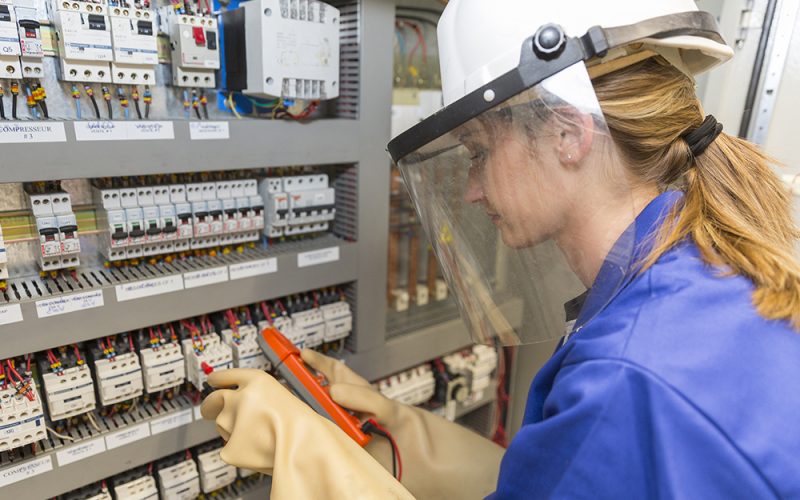Published on: October 19, 2020 at 8:05 AM
The energy and utilities businesses have a long tradition of apprenticeships, something which is reflected in their positive engagement with the apprenticeship reforms in England and their continued participation in the devolved apprenticeship systems in Northern Ireland, Scotland and Wales.
The energy and utilities sector recruits comparatively low numbers of apprentices, but they are high quality programmes, often in safety-critical technical roles, that meet specific business needs. These apprenticeships offer good careers that are critical to the business of consistent supply of power, heat, water and waste services.
As with every other aspect of training and employment, apprenticeships are being hit by the impacts of the COVID-19 health emergency. Across the UK economy there is concern that the reduction of the Job Retention Scheme, coupled with an economic recovery which is still constrained by the measures needed to control the spread of the virus, will lead to job losses, including many apprenticeships. The latest apprenticeships data from DfE indicates that commitments to apprenticeships on the Apprenticeship Service system are substantially lower for September 2020 than the previous year.
Ensuring that the systems are in place to recruit, train and graduate apprentices is key to the skills recovery. And this system needs to be flexible enough to meet current economic conditions; if not, we risk skills shortages in those critical roles that support our efforts to contain and defeat the virus, maintain essential services, and support economic recovery and growth. This includes the consistent provision of clean and safe water, stable and highly reliable power and heat; efficient and effective waste management.
As the economic outlook worsened, the Energy & Utilities Skills Partnership signalled the sector’s commitment to apprenticeships with the Apprenticeship Pledge – sending a clear public signal to the sector, stakeholders, the workforce and potential recruits that we are serious about supporting the apprenticeships we need. Thirty-three major UK employers – all apprenticeship levy payers – have signed the pledge.
Despite the sectors’ signalled commitment to apprenticeships, members report significantly increased delivery costs. Apprenticeship delivery models are often based on a group approach to some elements of training. We are seeing smaller training groups that lead to an increase in sessions. Travel and accommodation costs are similarly impacted.
And some elements of assessment have been changed to take advantage of the flexibilities agreed with the Institute for Apprenticeships and Technical Education (IfATE), some of which have required investment in on-line resources, such as enhanced IT systems and equipment and live streaming or recording capabilities. So, although many apprenticeships have been adapted to meet Covid-19 health guidelines, there has been an inevitable increase in cost.
Against this backdrop of increasing delivery costs and economic uncertainty, apprenticeships face the prospect of further financial pressure through IfATE’s funding band review. Indicative modelling suggests that the proposed model will result in significantly reduced funding bands for many apprenticeship standards in England.
Since 2017, apprenticeship standards in England have been funded through the apprenticeship levy, to which all UK employers with a payroll of £3m or more must contribute. To date, the Treasury has not allowed any flexibility in the apprenticeship levy process. Payments continue to be taken, irrespective of the reduction in apprenticeship numbers caused by Covid-19. And the window for employers to recover their contribution has remained at 24 months (after which, unused funds are removed from employers’ levy accounts on a monthly basis).
Consideration should now be given to extending the levy recovery period and allowing some flexibility in how the levy can be spent in order to support apprentices in critical industries.
Find Out More
If you would like to find out more about any of the information detailed within this article please contact Carl Jordan (Policy Manager) via carl.jordan@euskills.co.uk
